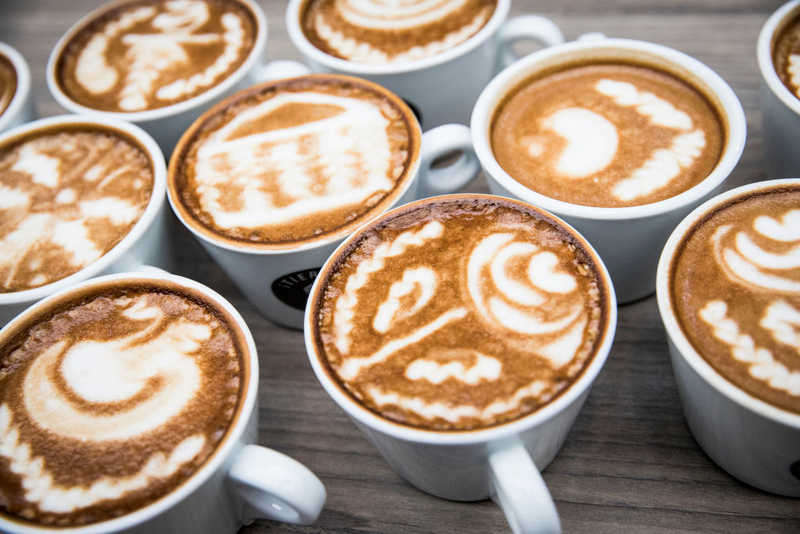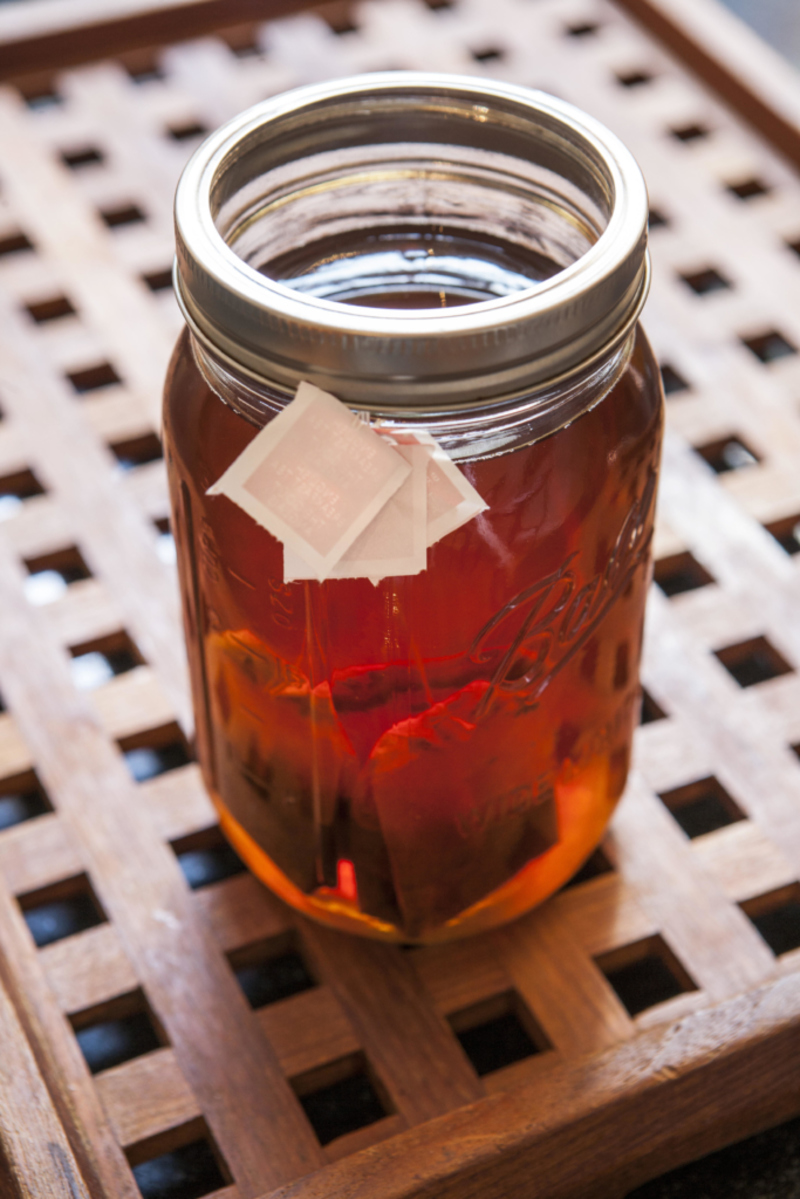As great as caffeine is—it can sometimes be confusing. While some rely on coffee to stay awake, others can drink it before bed without a problem. If you know how your body reacts to coffee, it’s essential to know how much you’re consuming. So how much caffeine is in coffee, tea, and matcha? These different levels of caffeine are based on one cup (8 oz.) of each beverage, according to the United States Department of Agriculture food database.

1. Cold Brew: 96 mg caffeine
Cold-brew coffee has a lot less acidity than brewed coffee, making it easier on our gut and less likely for us to get acid reflux. While some say cold-brew coffee and regular brewed coffee have the same amount of caffeine, that’s not always the case. Making cold brew requires more coffee grounds and a longer steeping time than regular coffee, so it may end up having more caffeine per cup than a typical brew but, if you dilute your cup with water or milk, the caffeine content should even out.
2. Brewed Coffee: 96 mg caffeine
Regular brewed coffee has one of the highest levels of caffeine, despite the caffeine, coffee is a good source of antioxidants and the anti-inflammatory compound chlorogenic acid. Coffee has also been proved to have a beneficial impact on metabolic syndrome, brain health, fatty liver, and diabetes.
3. Latte: 86.4 mg caffeine
Lattes generally contain more sugar than black coffees, especially when they’re from Starbucks and flavored. However, according to experts, lattes don’t contain as many antioxidants as cold-brewed or iced coffee.
4. Iced Coffee: 74.4 mg caffeine
Iced coffee is sometimes confused with cold-brew coffee, but different processes make them. Iced coffee is made the same as hot brewed coffee but maybe better for warmer weather since it’s served cold, over ice. Cold-brew coffee contains more caffeine as its more concentrated.

5. Matcha: 70 mg of caffeine
Matcha comes from green tea that has been ground into a fine powder. Of all the drinks on our list, matcha is the healthiest as it contains the highest amount of antioxidants, resulting in more significant antioxidant content compared to black tea or green tea.
6. Black Tea: 48 mg caffeine
The antioxidants present in green tea may not be as strong as green tea, but this drink still has a lot of health benefits.
7. Green Tea: 28.8 mg caffeine
Green tea is a bitter-tasting beverage with a fair amount of caffeine as well as a high number of health benefits, like antioxidants that have many beneficial effects as well, frequent green tea drinkers may even live longer.
8. Decaf Coffee: 0 to 15 mg caffeine
For women who are pregnant, decaf coffee may seem like a better alternative, but it does still contain small amounts of caffeine. Even trace amounts of caffeine add up over time if you consume multiple cups. Those who are merely trying to cut back on caffeine may switch to decaf and then slowly remove coffee altogether, as a way to help reduce caffeine withdrawal symptoms.
9. Herbal Tea: 0 mg of caffeine
For those looking to eliminate caffeinated drinks, we would recommend herbal tea. This is an excellent way to get the comfort of a warm mug, without the caffeine. Bonus: Many herbal teas can also help reduce bloat and stomach discomfort. Herbal teas include chamomile, ginger, fennel, peppermint, and turmeric teas.